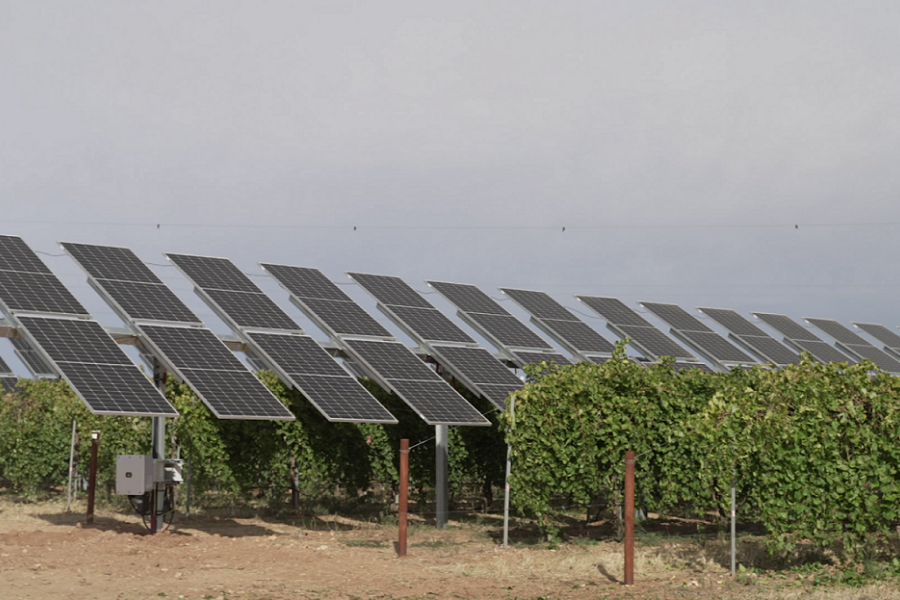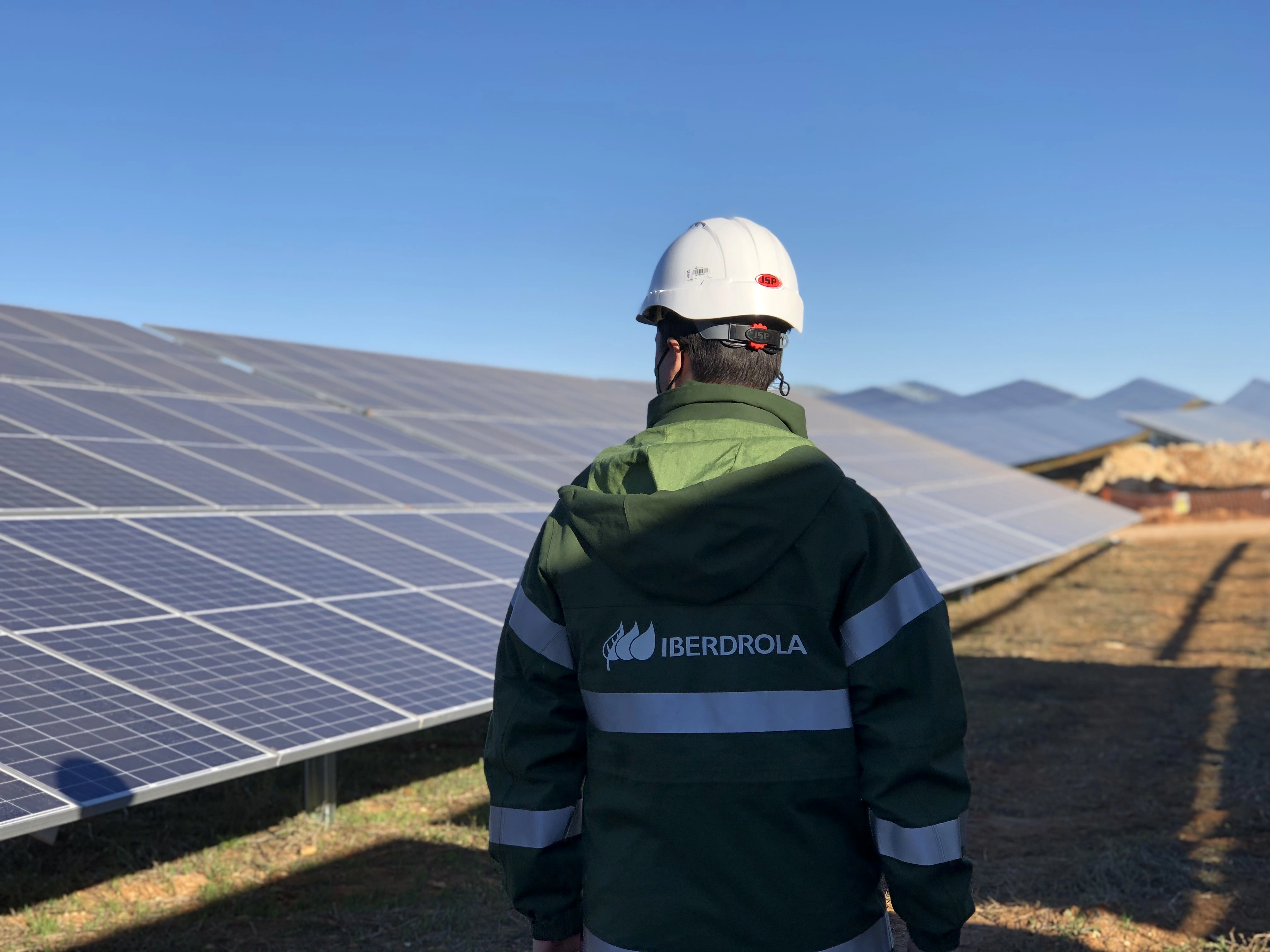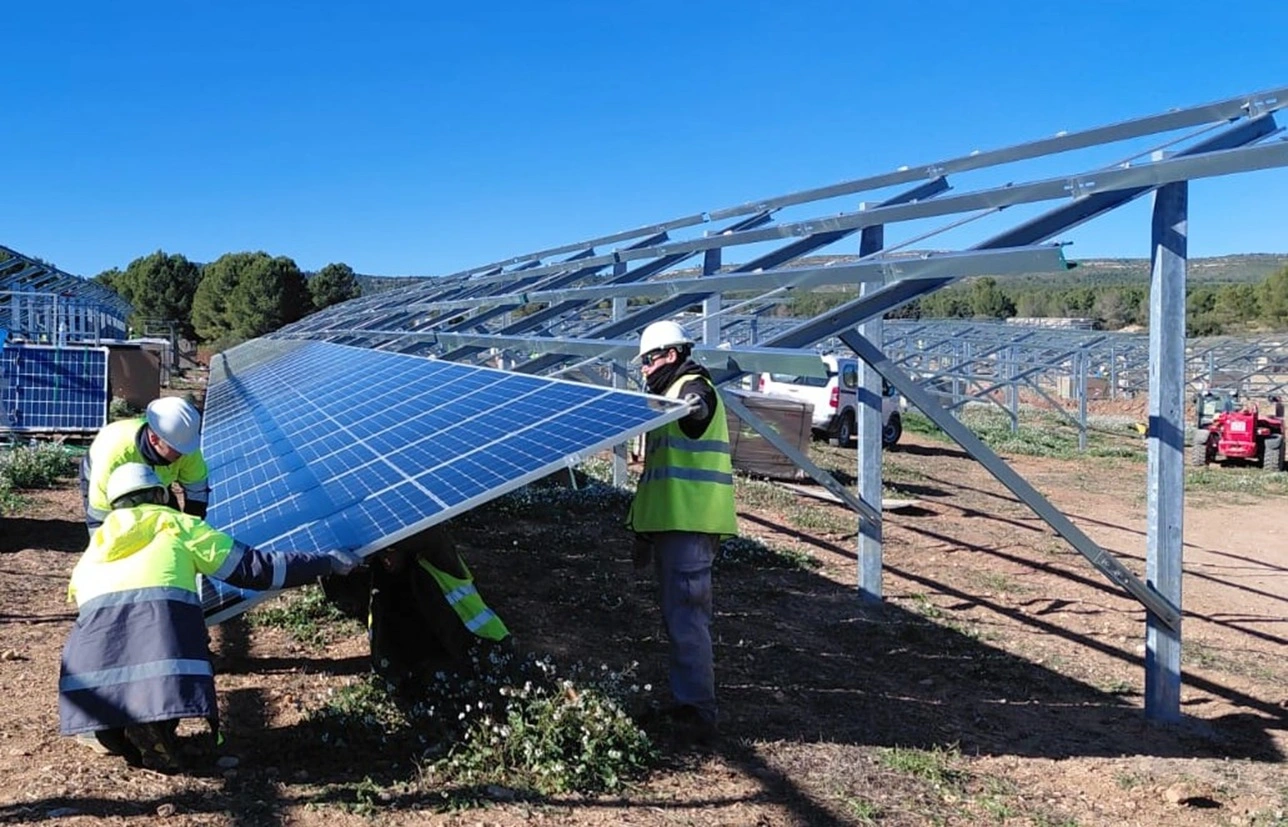Iberdrola España to build the first agrovoltaic system to boost apple cultivation in the Basque Country
- This is the only agrovoltaic project in the Basque Country selected in the First Call for investment aid programs for innovative renewable energy and storage projects
- The positioning software design has been developed by the Basque company Powerful Tree, with the aim of improving planting quality

Iberdrola España's WineSolar Project in Castilla La Mancha
Iberdrola España, as part of its goal to promote the coexistence of renewable energy and biodiversity and its contribution to socioeconomic development, will build a new agrovoltaic system in Álava, Basque Country, on land provided by the local government within the “Vitoria-Gasteiz: City Laboratory” program. The project will focus on boosting apple cultivation for high-quality cider production and generating renewable electricity.
Among other goals, the project aims to promote sustainable production by boosting organic farming, generating medium-term employment and business opportunities in the agricultural production sector and the distribution of organic agricultural products from Álava.
The operator of the apple orchard will be Sidrería Kuartango, a leader in agricultural research and development initiatives in Álava. Its goal with this project is to enhance the production of local apples.
The installation, consisting of 901 kW of photovoltaic panels, is an R&D project hybridized with batteries and has been the only agrovoltaic project selected in the Basque Country under the First Call for investment aid programs for innovative renewable energy and storage projects.
The positioning software design has been developed by the Basque company Powerful Tree and is designed to, using artificial intelligence, determine the optimal position of the solar panels at all times.
Positioned on a porticoed structure 4.1 meters above the apple trees, the panels not only supply clean energy but also provide shade, reduce irradiation and thermal stress, protect the trees from adverse weather influenced by climate change, improve soil and crop quality, and reduce water usage, among other benefits. The main porticoed structure is complemented by a new design of high-strength steel tensioned cables, which allow agricultural vehicles to pass freely and reduce maintenance costs for the plant.
With this goal in mind, the 700 W photovoltaic modules are equipped with trackers and are bifacial, allowing the panels to orient themselves for optimal performance in the orchard and generate solar energy from both sides. The installation also includes three inverters with a total capacity of 750 kWn, and a storage system with two modules, providing 240 kWn and two hours of storage capacity.
The project is part of the Basaldea Agroecological Business Center, a municipal initiative aligned with the European Green Deal's "From Farm to Fork" strategy and Vitoria-Gasteiz's agri-food strategy.
The agrarian business incubator is designed to support new organic farming ventures, offering land, equipment, and shared infrastructure for entrepreneurs. It also promotes professional training for young people in the field of organic farming while serving as a direct sales point for local agricultural produce.
Coexistence of renewables and the primary sector
Agrovoltaics not only contributes to energy and food sustainability but can also be a strategic tool for rural development. It provides dual land use, creating complementary economies and diversifying farmers’ income, making agriculture viable even in the context of unstable prices and increasing climate vulnerability.
Furthermore, this solar production system favors the creation of local, qualified jobs in areas at risk of depopulation and promotes the emergence of new businesses and services around the management, maintenance, and operation of the installations.
The success of agrovoltaics should not be measured by installed megawatts but by its ability to positively transform the lives of rural communities. It represents a future opportunity for farmers by offering them economic stability, access to new technologies, environmental sustainability, and a key role in the energy transition.


Discover Energía que cambia vidas
Pioneering in intelligent agrovoltaics in Spain
Iberdrola España is a pioneer in intelligent agrovoltaics in Spain, having launched the first plant of this technology in 2022 at the González Byass and Grupo Emperador vineyards, located in the town of Guadamur, Toledo. The installation adapts the module layout to the needs of the vines, using the panel shade to regulate sun exposure and temperature.
The installation, called Wine Solar, has a capacity of 40 kW and includes trackers controlled by an artificial intelligence algorithm that determines the optimal position of the solar panels placed above the vines. The angle of inclination is set based on data collected by sensors in the vineyards, which record solar radiation, soil moisture, wind conditions, and vine trunk thickness, among other factors.
Thanks to this solution, the installation helps improve grape quality, makes more efficient use of land, and reduces irrigation water consumption, thereby increasing the crop’s resilience to climate conditions, particularly rising temperatures and more frequent heatwaves.



